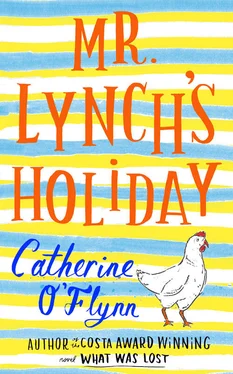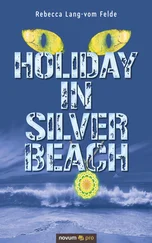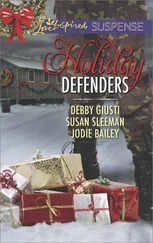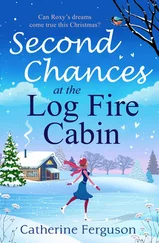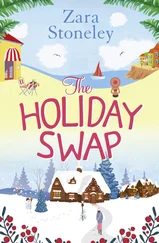‘I reckon we’re the first to ever handle these.’
Eamonn frowned at the card. ‘The translations are terrible. I need the menu in Spanish.’
‘Don’t call him back. Let him have his moment, son.’
Eamonn shrugged. ‘OK. I’ll have the “Landfill of pork”. Why don’t you try the “Vaporized fish”?’
‘That sounds grand.’
It was late when they left, and a long drive home on empty roads. They had been silent for some time when Dermot asked: ‘Are you tired?’
‘No, I’m OK.’
‘Easy to nod off on a drive like this.’
‘I was thinking about my first night here with Laura. We came in on a late flight. Drove across the desert. Didn’t pass another car for hours.’
‘The roads are quiet here all right.’
‘We’d been excited on the plane, talking a lot, but I just remember silence in the car. Tired, I suppose. Suddenly there was something in the headlights. Huge and white it looked. Then a bang.’
‘What was it?’
‘A wolf. Two of them had run out in front of us.’
‘Good God. Did you kill it?’
‘I don’t know. We stopped the car, but Laura said we shouldn’t get out, in case the other one came back. We sat there in the middle of the road, shaken up. We didn’t know what to do.’
‘I’d say you did the right thing.’
‘I’d forgotten all about it till tonight.’
‘Maybe it’s the full moon.’
Eamonn smiled. ‘It was a clear enough omen really.’
When they got back to Lomaverde Dermot said he wanted to take a look around.
‘But we’ll have time in the morning.’
‘I know, but I’d like to see it at night, one last time.’
They covered the length of the development, walking unhurriedly, saying little. They reached the end of the road, where the tarmac ceded control once more to scrubland, weeds, rocks, and the creatures that lived among them. They stood looking out towards the sea, tracking the movements of distant lights on the water.
‘It’s not all plain sailing,’ Dermot said.
‘What?’
‘Making the crossing. Starting somewhere new.’
‘No.’
‘That sense that you don’t belong. You’re not wanted. It’s hard to shake.’
‘You never really had that, did you?’
‘Didn’t I? We thought about leaving Birmingham, you know.’
‘And going back to Ireland?’
‘No, not back there. Just away from Birmingham.’
‘Why?’
Dermot turned to him. ‘Nineteen seventy-four, son. It wasn’t a good year.’
‘Oh. Yes.’
‘It started before then. It was all kicking off. Your mother was worried. She’d had a few comments at the hospital. Stupid things. Then there was a big hoo-ha about McDade’s funeral.’
‘Who was McDade?’
‘Fella from Sparkhill, your Uncle Mike knew him, drank with him sometimes. Turned out he was a volunteer. Blew himself up trying to plant a bomb in Coventry.’
‘A volunteer? For the IRA?’
Dermot looked at him. ‘Well, it wasn’t the Salvation Army planting the bombs.’ He paused. ‘Apparently some old cow at work had asked your mom why she wanted to be a nurse when all the Irish wanted to do was kill people. Your mother was upset. It wasn’t long before you were due and she got herself in a state.
‘She started worrying about how you might be treated, growing up with people like that about. People judging you just by your name.
‘I told her it was nonsense. She couldn’t be going and getting het up about one daft bat.
‘But she wouldn’t have it, said others were thinking the same thing. I remember saying people weren’t going to start thinking all Irish were terrorists because some lad had blown himself up in Coventry.’
He was quiet for a moment. ‘Sure, I didn’t know what was coming.
‘When we saw the news the next night the first thing I did was ring John Healey to make sure his girls hadn’t been up there; I knew the youngest drank in the Tavern in the Town. I heard from some other drivers that it was pandemonium up there. They’d had to use taxis to ferry the injured to hospital. The coppers were all out at the airport with McDade’s coffin.
‘We heard later that the presbytery over at the Sacred Heart had been petrol-bombed; your mother looked at me and said, “You see? You see what’s happening?” It didn’t matter that there were Irish among those killed. The Irish were still to blame.’
‘Did it get bad?’
Dermot shrugged. ‘There were lots of calls for calm, for reason. Some people surprised you. Do you remember old Mrs Stokes next door?’
‘Vaguely.’
‘I’d always thought she was a bit snooty, but she was very nice to your mother afterwards. She told her to pay no notice to the idiots.
‘I suppose it wasn’t that people thought we were all terrorists, but they thought we probably knew who they were, that we were protecting them. There was a lot of insinuation.
‘To be honest, it wasn’t so bad for me on the buses. There were enough of us Irish, and the rest of them stood by us. There was a lot of solidarity in the garage — the lads had come out for Civil Rights in ’69. But other places were pretty bad. There were walkouts and demos at Longbridge and some of the other big factories.’
‘Against the Irish?’
‘No, no, against the IRA, but some of them saw little difference.’
‘But it all died down after a bit, didn’t it?’
‘I don’t know if it died down, or we died down. We tried to make ourselves scarce — which is some trick when there’s a hundred thousand or more of you. No more St Patrick’s Day parades …’
‘You were never into all that though.’
‘All what?’
‘All the St Patrick’s Day nonsense — the big hats and the shamrocks.’
‘I don’t know about big hats, but certainly we celebrated St Patrick’s Day. I remember the first parade just after I’d come over in ’50 — there must have been a thousand of us from the buses — we had our own banner. It was a great day. There’d always be a big dance on the night. The first time I met your mother was at one of them. All that seemed to stop overnight.’
He sniffed. ‘After those bombs in London last year …’
‘IRA?’
‘No, the other lot: 7/7 — the bus blown up. I said to Sunny who runs the shop round the corner, I said, “Do you know what’s coming?”’
‘What did he say to that?’
‘He shrugged. He said, “It’s already here.”’
Eamonn followed the light of a fishing boat drawing closer.
‘But you stayed in Birmingham.’
‘We did. We got through it. We didn’t want to leave. It felt like home.’
They’d been standing so long that Eamonn had grown cold.
‘It’s late, Dad.’
‘You go on. I want to stay a while. I won’t be long.’
Eamonn walked slowly, looking up at the moon, bigger than he had ever seen it. It was not the moon he knew. Its familiar, mournful face was lost in craters and shadows. He longed then to be home.
When he looked down there was a boy standing in the road in front of him. They stood immobile, neither breathing. The boy stopped in his tracks, frozen mid-run. Eamonn looked into the wide eyes he had seen before.
‘You.’
His hand reached out slowly towards him. Fully outstretched, still he could not touch him. The boy glanced down at the hand, hanging there in the air between them, and then back at Eamonn. He gave the briefest smile and then he was gone, running silently towards the empty houses.
Eamonn was standing by a cement mixer when Dermot reached him.
‘Were you waiting for me?’
Eamonn held his finger up to his lips and then pointed to the left of the building site, where the last completed house in Lomaverde stood. Dermot followed his gaze. The windows and front door were hidden behind metal shutters. Eamonn waited for a moment or two and then heard his father breathe in sharply. He had seen it. Tiny gaps in the shutters revealing dark shapes moving back and forth, some at a downstairs window, more upstairs — barely perceptible, shadows through keyholes.
Читать дальше
